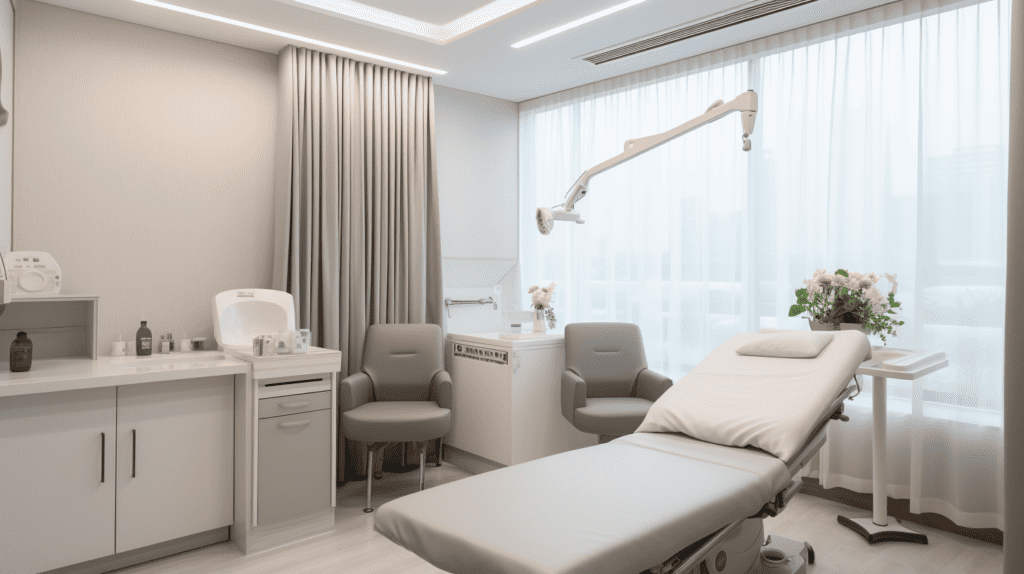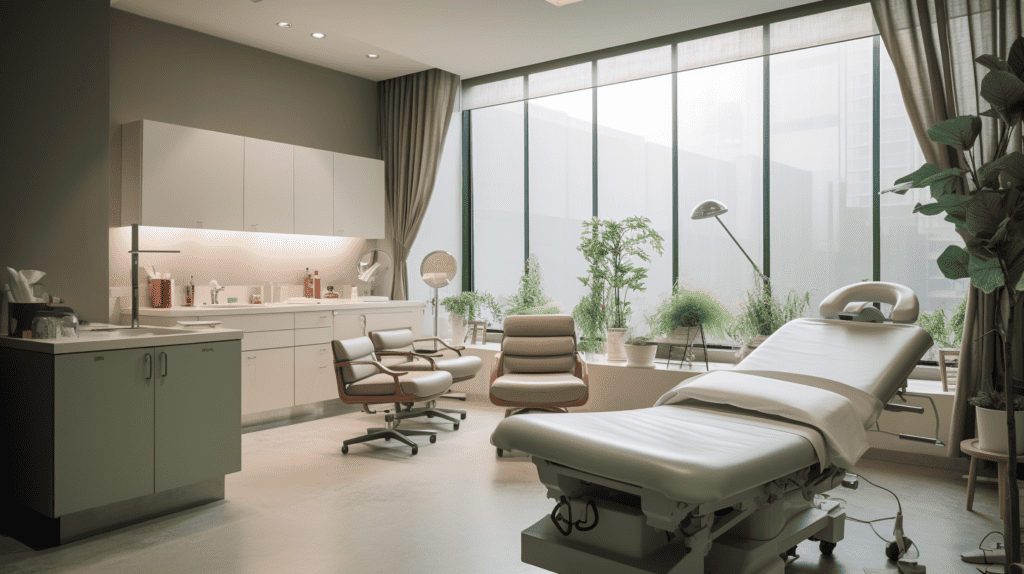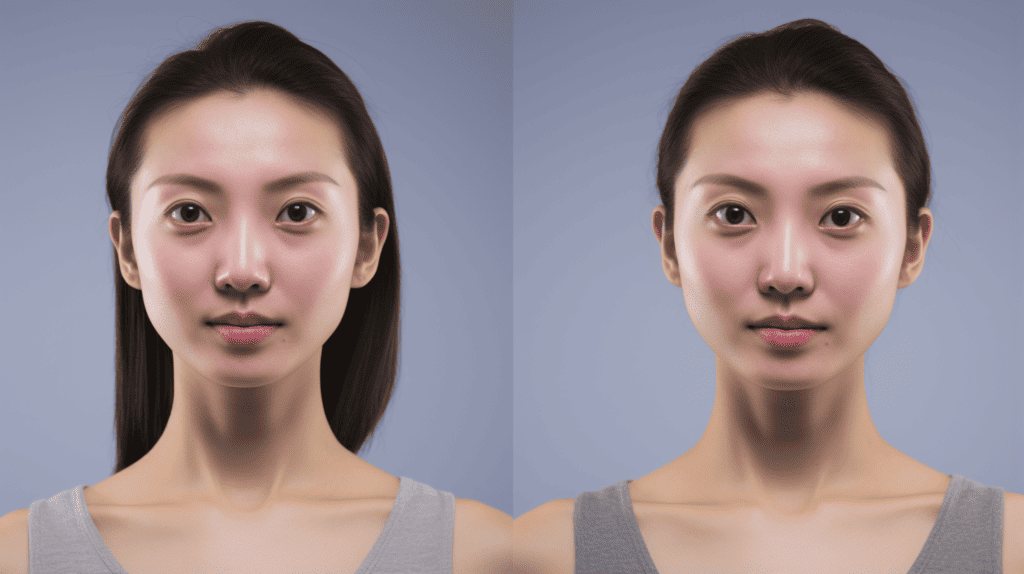If you’re experiencing symptoms like sneezing, itching, or a runny nose, you might be wondering if you have allergies. An allergy test can help you find out for sure. In Singapore, there are various clinics and medical centers that offer allergy testing services.
Allergy tests can identify the specific allergens that trigger your symptoms. There are different types of allergy tests available, such as skin prick tests and blood tests.
Skin prick tests involve placing a small amount of allergen on your skin and then pricking it with a needle to see if there’s a reaction. Blood tests, on the other hand, measure the levels of antibodies in your blood to determine if you have an allergy. Depending on your symptoms and medical history, your doctor will recommend the best type of allergy test for you.
Getting an allergy test in Singapore is a straightforward process. You can make an appointment with a clinic or medical center that specializes in allergy testing.
Some clinics even offer home screening services for added convenience. Once you’ve been tested, your doctor will be able to provide you with a diagnosis and recommend the appropriate treatment. If you suspect you have allergies, don’t hesitate to schedule an appointment for an allergy test.
Understanding Allergies

Allergies are a common condition that affects many people in Singapore. An allergy is a reaction of your immune system to a substance that is normally harmless. This substance is called an allergen.
When your immune system encounters an allergen, it produces a specific type of antibody called Immunoglobulin E (IgE) antibodies. These antibodies trigger the release of histamine and other chemicals, which cause the symptoms of an allergic reaction.
Allergens can be found in many different forms, such as pollen, dust mites, animal dander, and certain foods. When you come into contact with an allergen, your body reacts by releasing histamine and other chemicals, which cause symptoms such as sneezing, runny nose, itchy eyes, and skin rash.
Allergic reactions can be mild or severe. Mild allergic reactions typically involve symptoms such as sneezing, runny nose, and itchy eyes. These symptoms can be treated with over-the-counter antihistamines. However, severe allergic reactions, such as anaphylaxis, can be life-threatening and require immediate medical attention.
Allergic rhinitis is a common type of allergy that affects the nose and eyes. It causes symptoms such as sneezing, runny nose, and itchy eyes. Allergic rhinitis can be caused by many different allergens, such as pollen, dust mites, and animal dander.
Anaphylaxis is a severe allergic reaction that can be life-threatening. It typically occurs within minutes of exposure to an allergen. Symptoms of anaphylaxis include difficulty breathing, swelling of the face and throat, and a rapid heartbeat.
In conclusion, allergies are a common condition that affects many people in Singapore. Allergens can be found in many different forms, such as pollen, dust mites, animal dander, and certain foods.
Allergic reactions can be mild or severe, and severe allergic reactions, such as anaphylaxis, can be life-threatening and require immediate medical attention. If you experience symptoms of an allergy, it is important to seek medical attention to determine the cause and receive appropriate treatment.
Common Allergens in Singapore

If you are experiencing allergy symptoms, it is important to identify the allergen that is causing your symptoms. In Singapore, there are a number of common allergens that can cause allergic reactions. These include:
- Dust mites: These tiny creatures are a common allergen in Singapore. They are found in bedding, carpets, and upholstered furniture.
- Pollen: Pollen from trees, grasses, and weeds can trigger allergic reactions in some people. Singapore has a tropical climate, which means that pollen is present throughout the year.
- Food allergens: There are many different types of food that can cause allergic reactions. The most common food allergens in Singapore include shellfish, peanuts, tree nuts, fish, eggs, soy, wheat, and milk.
- Mold: Mold spores can trigger allergic reactions in some people. Singapore’s humid climate provides a perfect environment for mold growth.
- Pet dander: Pet dander is a common allergen in Singapore. It is the tiny flakes of skin that pets shed.
- Blomia tropicalis: This is a type of dust mite that is commonly found in Singapore. It is a major allergen for many people in the country.
- D. pteronyssinus: This is another type of dust mite that is commonly found in Singapore. It can cause allergic reactions in some people.
- D. farinae: This is yet another type of dust mite that is found in Singapore. It can cause allergic reactions in some people.
- Ragweed: Ragweed is a common allergen in other parts of the world, but it is not as common in Singapore. However, some people in the country may still be allergic to ragweed.
- Alternaria alternata: This is a type of mold that is commonly found in Singapore. It can cause allergic reactions in some people.
- Aspergillus fumigatus: This is another type of mold that is commonly found in Singapore. It can cause allergic reactions in some people.
- Bermuda grass: Bermuda grass is a common allergen in other parts of the world, but it is not as common in Singapore. However, some people in the country may still be allergic to Bermuda grass.
- Timothy grass: Timothy grass is another common allergen in other parts of the world, but it is not as common in Singapore. However, some people in the country may still be allergic to timothy grass.
If you suspect that you have an allergy, it is important to see a doctor for an accurate diagnosis. Your doctor may recommend an allergy test to determine the specific allergen that is causing your symptoms. Once you know what you are allergic to, you can take steps to avoid the allergen and manage your symptoms.
Types of Allergy Tests

If you suspect that you have an allergy, it is important to get tested to determine the allergen causing your symptoms. There are several types of allergy tests available in Singapore, and your doctor will choose the best test that is suitable for your case. In this section, we will discuss the most common types of allergy tests.
Skin Prick Test
A skin prick test is a common allergy test that involves placing a small amount of allergen extract on your skin and pricking it with a needle. This test is usually done on the forearm or back and is used to test for allergens such as pollen, dust mites, pet dander, and food. If you are allergic to the substance, a small itchy bump or hive will appear on your skin within 15-20 minutes.
Blood Test
A blood test is another common allergy test that measures the amount of immunoglobulin E (IgE) antibodies in your blood. IgE antibodies are produced by your immune system in response to an allergen. This test is used to test for allergens such as food, pollen, dust mites, and pet dander. The most common type of blood test used for allergy testing in Singapore is the Immunoglobulin E (IgE) blood test.
Patch Test
A patch test is a type of allergy test used to determine if you have a skin allergy. This test involves placing a small amount of allergen extract on a patch, which is then placed on your skin. The patch is left on your skin for 48 hours, and if you are allergic to the substance, a red, itchy rash will appear on your skin.
Elimination Diet
An elimination diet is a type of allergy test that involves removing certain foods from your diet for a period of time and then reintroducing them to see if your symptoms return. This test is used to test for food allergies.
Component-Resolved Diagnosis (CRD)
A Component-Resolved Diagnosis (CRD) is a type of blood test that can identify specific allergen components that are causing your symptoms. This test is used to test for allergens such as pollen, dust mites, and pet dander.
In conclusion, there are several types of allergy tests available in Singapore, and your doctor will choose the best test that is suitable for your case. It is important to get tested if you suspect that you have an allergy, as this can help you to manage your symptoms and avoid potential allergic reactions.
Food Allergies
If you suspect that you have a food allergy, it is important to get tested as soon as possible. Food allergies can cause a range of symptoms, from mild to severe, and can even be life-threatening in some cases.
Common food allergens include milk, peanuts, eggs, wheat, seafood, soy, and tree nuts. Some people may also be allergic to specific types of seafood, such as crab or clam, or specific types of nuts, such as almonds or hazelnuts.
During an allergy test, your doctor may use a skin prick test or a blood test to determine if you have an allergy to a specific food. If you are diagnosed with a food allergy, it is important to avoid the allergen completely.
If you have a food allergy, it is also important to be aware of cross-contamination. This can occur when a food that contains the allergen comes into contact with a food that does not contain the allergen. For example, if you have a peanut allergy, you should be careful when eating foods that may have been prepared with peanuts, such as cookies or cakes.
In addition to food allergies, some people may also experience food intolerance. This is different from an allergy and does not involve the immune system. Food intolerance can cause a range of symptoms, including bloating, gas, and diarrhea, and may be caused by a variety of foods, such as gluten or dairy.
If you are experiencing symptoms after eating certain foods, it is important to talk to your doctor about getting tested for food allergies or intolerance. With proper diagnosis and management, you can continue to enjoy a healthy and varied diet while avoiding the foods that may cause an allergic reaction or intolerance.
Allergy Testing Clinics in Singapore

If you suspect that you have an allergy, it is important to get tested to determine the cause and severity of your symptoms. Fortunately, there are many allergy testing clinics in Singapore that can help you.
One such clinic is Dr. Tan & Partners, which has multiple locations including one in Raffles Place. They offer a variety of allergy testing services, including skin prick tests and blood tests. You can easily make an appointment online or by phone, and their friendly doctors will guide you through the testing process and provide recommendations for treatment.
Another great option is DB Medical, which specializes in women’s and men’s health as well as general health screening services. They offer comprehensive allergy testing to help determine the cause of your symptoms and develop a personalized treatment plan. You can book an appointment online or by phone, and their experienced doctors will provide you with a thorough consultation.
If you’re looking for an ENT specialist, Holland V ENT Clinic is a great choice. They offer allergy testing services as well as treatments for a variety of ear, nose, and throat conditions. You can book an appointment online or by phone, and their friendly staff will ensure that you receive the care you need.
Overall, there are many clinics in Singapore that offer allergy testing services. Whether you’re looking for a general health screening or a specialized consultation with an ENT specialist, there’s a clinic that can help you. So don’t hesitate to make an appointment and get the answers you need to manage your allergies.
Allergy Test Procedures

If you suspect that you have an allergy, it is essential to undergo an allergy test procedure to identify the allergen that triggers your symptoms. In Singapore, there are two main types of allergy tests – the skin prick test and the blood test.
Skin Prick Test
The skin prick test is a common allergy test procedure that involves placing a small amount of allergen extract on your skin and pricking it with a needle. This test helps identify the allergen that causes an allergic reaction. The results of this test are usually available within 15-20 minutes.
Blood Test
The blood test, also known as the RAST or ImmunoCAP test, is another allergy test procedure that helps identify the allergen that triggers an allergic reaction. This test measures the amount of Immunoglobulin E (IgE) antibodies in your blood in response to specific allergens. The results of this test may take a few days to be available.
Both the skin prick test and blood test are effective in diagnosing allergies. Your doctor will recommend the best test for you based on your symptoms and medical history.
Sublingual Immunotherapy (SLIT)
If you are diagnosed with an allergy, your doctor may recommend sublingual immunotherapy (SLIT) as a treatment option. SLIT involves placing a small amount of allergen extract under your tongue, which helps build your immunity to the allergen over time. SLIT is a safe and effective treatment option for allergies, and it is suitable for both adults and children.
In conclusion, undergoing an allergy test procedure is essential if you suspect that you have an allergy. The skin prick test and blood test are the two main types of allergy tests in Singapore, and your doctor will recommend the best test for you based on your symptoms and medical history. If you are diagnosed with an allergy, sublingual immunotherapy (SLIT) is a safe and effective treatment option.
Cost of Allergy Tests

Getting an allergy test in Singapore is a smart decision if you experience symptoms like sneezing, coughing, rashes, and itching. The cost of allergy tests in Singapore can vary depending on the type of test you need and the clinic you choose. However, most clinics offer affordable and comprehensive allergy testing services.
At healthscreening.sg, you can get a single allergen test for as low as $56. If you need a comprehensive allergy test, you can opt for their 59 allergen panel test, which costs $678. If you want to test for food allergies, you can choose their IgG food allergy/intolerance test, which has up to 270-panel for food testing.
DTAP Clinic provides affordable and comprehensive allergy testing, screening (skin prick test), and allergy treatment. They charge a consultation fee of $35 before GST, and their allergy test prices range from $100 to $150 for a skin prick test for crabs, $65 to $80 for a comprehensive allergy test, and $1,500 to $3,500 for a test that covers household pets, mold, mites and dust, food allergens, condiments and drinks, seasonings, and seafood.
If you want a range of allergy testing services to meet your concerns and needs, you can go to Raffles Medical Group. They offer a skin prick test for $112.35, a blood allergy RAST test for $149.80, and an allergy patch test for $214.00.
ATA Medical Singapore provides a 59 Panel Comprehensive Blood Test for $488.00 before GST. You will be required to consult their friendly doctor before doing an allergen test, and there will be a consultation fee of $35 before GST.
Overall, the cost of allergy tests in Singapore is reasonable and affordable. With the various clinics and tests available, you can choose the one that fits your budget and needs.
Impact of Allergies

Allergies can have a significant impact on your health and overall well-being. They can affect various aspects of your life, from your daily activities to your quality of life.
If you suffer from allergies, you may experience nasal discomfort, such as a runny or stuffy nose, sneezing, or itching. These symptoms can be particularly troublesome if you have asthma or eczema, which are also conditions that are commonly associated with allergies.
Allergies can also cause hives, which are raised, itchy bumps on the skin. Hives can be painful and uncomfortable, and they can also be embarrassing if they occur in visible areas of the skin.
In addition to physical symptoms, allergies can also impact your quality of life. If you have allergies, you may find yourself avoiding certain activities or places because of the risk of exposure to allergens. For example, if you are allergic to pollen, you may avoid spending time outdoors during the spring and summer months.
Allergies can also impact your daily activities. If you suffer from allergies, you may find it difficult to concentrate at work or school because of your symptoms. You may also experience fatigue or irritability, which can further impact your ability to function on a daily basis.
To avoid the negative impact of allergies, it is important to identify the specific allergens that trigger your symptoms. Allergy testing can help you determine the allergens that affect you, so you can take steps to avoid them and manage your symptoms effectively.
Making an Appointment

If you suspect that you have allergies and want to get tested, making an appointment with an allergy clinic is the first step. Fortunately, in Singapore, you have a lot of options to choose from. Here are some tips to help you make an appointment:
Group Appointments
If you want to get tested together with a group of people, such as your family or friends, some clinics offer group appointments. This can be a convenient and cost-effective option, as you may be able to get a discount on the testing fees. Check with the clinic if they offer group appointments and what the requirements are.
Location
When choosing a clinic, consider the location. You want to find a clinic that is easily accessible and convenient for you to get to. Some clinics have multiple locations, so you can choose the one that is closest to your home or workplace. You may also want to consider the clinic’s hours of operation, especially if you have a busy schedule.
Making an Appointment
To make an appointment, you can usually call the clinic directly or book online through their website. Some clinics may require a referral from your primary care physician, so check with the clinic if this is necessary.
When making an appointment, be sure to provide your contact information and any relevant medical history. You may also want to ask about the clinic’s cancellation policy and what to expect during the testing process.
Overall, making an appointment for allergy testing in Singapore is a straightforward process. By considering factors such as group appointments and location, you can find a clinic that meets your needs.
Allergy Treatment

If you have been diagnosed with allergies in Singapore, there are several treatment options available to help manage your symptoms. Your doctor may recommend one or more of the following treatments based on the severity of your allergies:
Medications
There are several types of medications that can be used to treat allergies, including antihistamines, decongestants, and nasal corticosteroids. Antihistamines can help relieve symptoms such as sneezing, runny nose, and itching. Decongestants can help reduce nasal congestion, while nasal corticosteroids can help reduce inflammation in the nasal passages.
Immunotherapy
Immunotherapy, also known as allergy shots, is a treatment option that can help reduce your sensitivity to allergens over time. This treatment involves getting regular injections of small amounts of the allergen that you are allergic to. Over time, your body will become less sensitive to the allergen, and your symptoms will improve.
Sensitivities
It is important to identify and avoid the allergens that trigger your symptoms. Your doctor may recommend that you keep a diary of your symptoms to help identify your triggers. Once you have identified your triggers, you can take steps to avoid them. For example, if you are allergic to pollen, you can stay indoors during peak pollen season or wear a mask when you go outside.
In addition to the above treatments, there are several lifestyle changes that you can make to help manage your allergies. These include keeping your home clean and free of allergens, using air purifiers, and avoiding smoking and exposure to secondhand smoke.
Remember, it is important to work closely with your doctor to develop a treatment plan that is tailored to your specific needs. With the right treatment and management strategies, you can live a healthy and happy life, even with allergies.
General Health Screening

Regular health screenings are essential for maintaining good health. General health screenings can detect health problems early, even before symptoms appear. This allows for prompt treatment and management of health conditions.
When it comes to general health screening, it is important to choose a reliable clinic that provides accurate results. You want to ensure that the clinic you choose has experienced healthcare professionals who use the latest screening techniques and equipment.
In Singapore, there are many clinics that offer general health screening packages. These packages typically include a range of tests, such as blood tests, urine tests, and imaging tests. The specific tests included in the package may vary depending on your age, gender, and medical history.
During a general health screening, your healthcare provider will review your medical history and perform a physical examination. They may also ask you questions about your lifestyle, such as your diet, exercise habits, and smoking status.
Some of the benefits of general health screening include:
- Early detection of health problems
- Prevention of serious health conditions
- Improved management of existing health conditions
- Peace of mind knowing that you are taking steps to maintain good health
Overall, general health screening is an important part of maintaining good health. By choosing a reliable clinic and getting regular screenings, you can ensure that you are taking steps to protect your health and well-being.
Frequently Asked Questions
What are the common types of allergy tests available in Singapore?
The two most common types of allergy tests available in Singapore are the skin prick test (SPT) and the blood test for allergies (RAST/ImmunoCAP). During an SPT, a small amount of allergen is placed on your skin and then the skin is pricked to see if there is a reaction. Blood tests for allergies measure the amount of antibodies in your blood to specific allergens.
How much does a comprehensive allergy test cost in Singapore?
The cost of an allergy test in Singapore can vary depending on the type of test you need and where you get it done. A comprehensive allergy test can cost anywhere from $150 to $500. It is best to check with the clinic or hospital you plan to visit for specific pricing information.
Where can I get an allergy test in Singapore?
You can get an allergy test done at a variety of clinics and hospitals in Singapore. Some popular options include private clinics like Dr. Leslie Koh’s clinic or Dr. Ben Medical, as well as hospitals like Mount Elizabeth Hospital and Raffles Hospital.
Can I get an allergy test through my GP in Singapore?
Yes, you can get an allergy test through your GP in Singapore. Your GP may refer you to a specialist if necessary, but they can also perform basic allergy tests themselves.
Are there any hospitals in Singapore that offer allergy testing?
Yes, there are several hospitals in Singapore that offer allergy testing. Some popular options include Mount Elizabeth Hospital, Raffles Hospital, and National University Hospital.
What is the accuracy of allergy tests in Singapore?
The accuracy of allergy tests in Singapore can vary depending on the type of test and the clinic or hospital where it is performed. However, in general, allergy tests are considered to be quite accurate. It is important to note that no test is 100% accurate, and it is always best to discuss your results with a doctor to understand what they mean for your specific situation.




